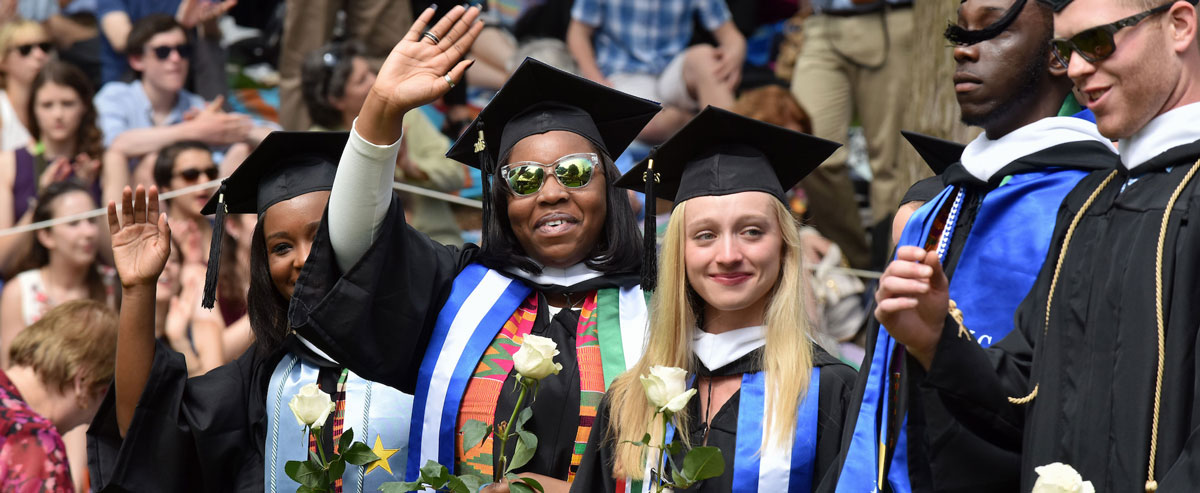Priority
Provide multiple opportunities and options for students to connect with supportive and safe people and places on campus. Institutionalize more staffing structures and places that can support, advocate and provide space for programming, dialogue, response and celebration.
Goals
- Build a culture of inclusiveness on campus by creating an environment where all students feel welcome, heard, and understood through increased assessment of student needs, educational opportunities, and intercultural competence training for staff and faculty
- Identify, develop, and institute curricular and complementary co-curricular methods of building cultural capacity for all members of the Wheaton community to strengthen our culture of inclusiveness
- Develop a system for assessment to evaluate progress of initiatives.
Recommended Strategies
- Include more student success stories on the Wheaton web page, brochures, Wheaton Magazine, and other external-facing marketing materials and internal publications to more accurately mirror Wheaton’s demography.
- Enhance the focus of the Marshall Center in providing academic, cultural and social support for students of color. The Center will work to offer co-curricular enrichment and programs with partners in the Academic Affairs division.
- Develop and institutionalize a diversity program or training as a hallmark component to the Wheaton Orientation Programs as well as adding a follow up program to Wheaton Orientation Programs within the first 6 weeks.
- Clarify the purpose of CID as a committee that is charged with identifying gaps in social justice programming on campus through assessment and coordinating a series of signature social justice programs and flexible training units that happen on an annual basis
- Task Intercultural Board with inventorying and assessing all current intercultural events of current clubs and organizations under the ICB umbrella and consider alternative ways to streamline social justice themed programs to improve visibility and engagement.
- Ensure that diversity training is included as a component in all leadership development programs on campus. Wheaton should work cross-divisionally and cross-departmentally to strengthen these programs, providing cross training based on the expertise of each department/area.
- Develop and offer additional flexible training units around diversity, including interfaith, abilities, social justice ally, and other modules, similar to SAFE zone
- Develop and offer courses that build cultural competence into the curriculum or mandate courses that focus on cultural competency
Progress
- Created the Network for LGBTQ+ Inclusion, Support and Advocacy
- Hired new Coordinator for Student-Athlete Success, Inclusion and Leadership
- Selected to participate in the Excellence in Academic Advising initiative with the support of NACADA – The Global Community for Academic Advising and the Gardner Institute
- Restructured the Filene Center for Academic Advising and Career Services and is newly staffed with Student Success Advisors
- Secured the competitive $1 million grant from the Howard Hughes Medical Institute (HHMI) to support inclusive excellence in STEM
- Developing courses that build cultural competence is one of the responsibilities of the new Associate Provost for Diversity and Faculty Development and was built into the mission of the Center for Collaborative Teaching and Learning
- Leadership Development Rubric, which includes components of diversity and inclusion training, integrated in all training for student leaders/groups starting fall 2018
- Wheaton Orientation Programs are in place as it has been for four years and the follow up orientation training is underway; online modules pre-matriculation will be implemented fall 2018
- Hosted the first Alumni of Color Conference in April 2018
- Student success stories can be found via the college’s News website
